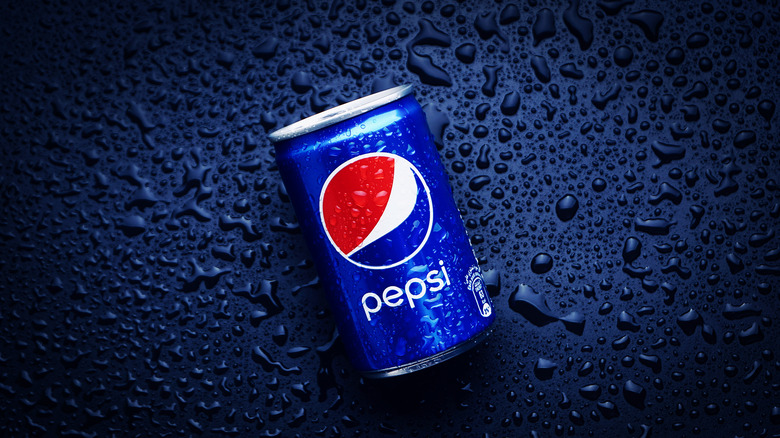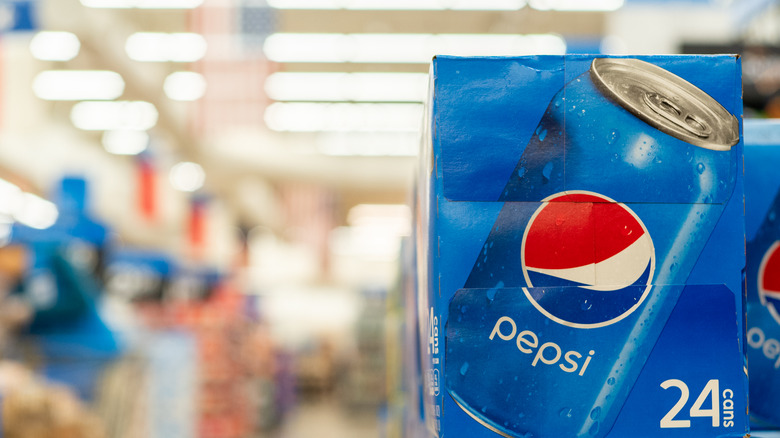How PepsiCo Plans To Decrease Plastic Use By 2030
With the climate crisis unfolding around the world in real-time, sustainability is an issue at the forefront of many consumer minds. According to a 2018 Nielsen survey via FoodDive, nearly half (48%) of U.S. consumers said they are willing to change which products they buy to support brands with environmentally-friendly business practices. That year, consumers spent $128.5 million on sustainable products, demonstrating a whopping 20% year-over-year market sales increase.
Sustainable packaging has only taken off since then. Last year, per Food & Wine, beer brand Corona tested a biodegradable six-pack holder made from barley and wood pulp. But before that, in 2020, PepsiCo introduced recyclable pop rings made from molded pulp (via FoodNavigator USA). 2022 has already been a successful year for the company. PepsiCo reported that it slashed unhealthy ingredients from 53% of beverages three years ahead of schedule; its projected goal marker was 67% by 2025, says Food Business News. Now, the soda giant has announced another major leap toward decreasing plastic use.
This week via a press release, PepsiCo said it plans to "reduce single-use virgin plastic" by 50% per serving by 2030. It aims to reduce its overall tonnage of non-renewable virgin plastics by 20% and to make 100% of its packaging recyclable, reusable, biodegradable, or compostable by 2025, per PepsiCo. Here's how the company plans to do it.
Radically reimagining grab-and-go soda
Currently, 10% of the products in PepsiCo's portfolio are produced through reusable models, according to Food Business News – a figure the company wants to raise to 20% by 2030. So, how will PepsiCo make it happen? Jim Andrew, PepsiCo's chief sustainability officer, says "Moving away from reliance on single-use packaging" is key. Mexico, Guatemala, Chile, Colombia, Germany, and the Philippines already have existing bottle return programs with PepsiCo. Reusable bottles might very well be on the horizon for consumers. The company says it will also explore bio-based materials, using at least 50% recycled content in its packaging.
To promote sustainability back in 2018, PepsiCo bought SodaStream for $3.2 billion, per a press release. SodaStream is a small kitchen appliance that makes sparkling water and pop at home, eliminating the need for beverage packaging altogether. PepsiCo's prepare-at-home powdered concentrates like Gatorade and Muscle Milk serve a similar purpose. By devoting more attention to these bottle-less models, PepsiCo claims it could wipe out over 200 billion plastic bottles by 2030.
These innovations might mark a major trend shift for the bottled soda industry. The Coca-Cola Company aims to make 100% of its packaging recyclable by 2025, and the payoff of these efforts is already visible. In 2021, Coca-Cola collected and recycled an estimated 61% of the bottles and cans it sold globally. Hopefully, these demonstrated commitments to sustainability could turn the tides of the single-use plastic crisis sooner than consumers imagine.

